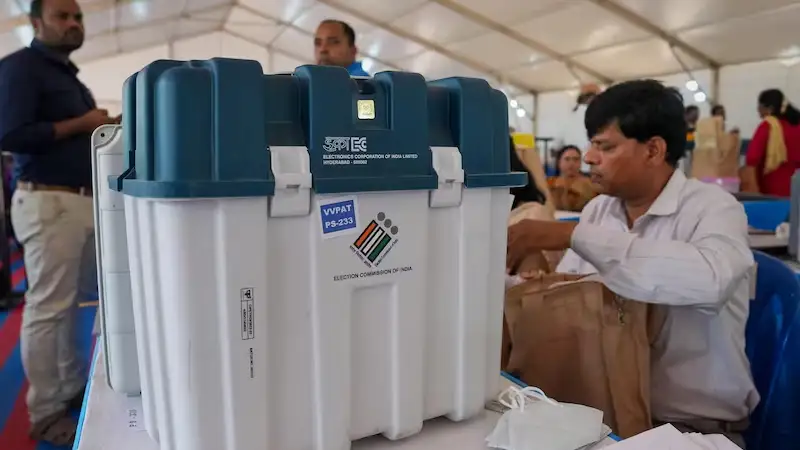On the completion of Modi Cabinet 3.0, the Union Cabinet on Wednesday approved the proposal to conduct State assembly elections (One Nation One Election) along with Lok Sabha in the country. The bill will be introduced in Parliament in the winter session i.e. November-December 2024. After the cabinet meeting, Union Minister Ashwini Vaishnaw said that 'Assembly and Lok Sabha elections will be held together in the first phase. After this, civic elections should be held together in the second phase within 100 days.
On September 17, Home Minister Amit Shah said that the government would implement 'One Nation One Election' in this term itself. On August 15, the Prime Minister had said that frequent elections are creating obstacles in the progress of the country.
The committee was headed by former President Ram Nath Kovind, formed to consider the One Nation One Election, and submitted its report to President Draupadi Murmu on March 14. The report is of 18 thousand 626 pages. The panel was formed on 2 September 2023. This report is the result of 191 days of research after discussion with stakeholders and experts. The committee has suggested extending the tenure of all assemblies till 2029.
What are the recommendations of the Kovind Committee on ONOE?
Below are the recommendations made by the Kovind Committee-
- The term of all state assemblies should be extended till the next Lok Sabha elections i.e. 2029.
- In case of a hung assembly (no one has a majority), or no-confidence motion, fresh elections can be held for the remaining 5-year term.
- In the first phase, Lok Sabha-Assembly elections can be held simultaneously, after which in the second phase, local body elections can be held within 100 days.
- The Election Commission will prepare a single voter list and voter ID card for Lok Sabha, Assembly, and local body elections in consultation with state election officials.
- The Kovind panel has recommended advance planning of equipment, manpower, and security forces to conduct simultaneous elections.
Current Scenarios of One Nation-One Election-
To implement the One Nation-One Election, the tenure of many state assemblies will be reduced. The tenure of the states in which assembly elections were held at the end of 2023 can be extended. The report also said that if all the parties agree on the proposal of the Law Commission, then it will be implemented from 2029 itself. Also, for this, assembly elections will have to be held in 25 states by December 2026.
First phase: 6 states, voting: in November 2025
Bihar: The current term will be completed. The next one will be only three and a half years.
Assam, Kerala, Tamil Nadu, West Bengal, and Puducherry- The current term will be reduced by 3 years and 7 months. The term after that will also be 3 and a half years.
Second phase- 11 states, voting: in December 2026
Uttar Pradesh, Goa, Manipur, Punjab and Uttarakhand: The current term will be reduced by 3 to 5 months. After that it will be two and a quarter years.
Gujarat, Karnataka, Himachal, Meghalaya, Nagaland, Tripura: The current term will be reduced from 13 to 17 months. The next term will be two and a quarter years.
After these two phases, the term of all the assemblies of the country will end in June 2029.
It is pertinent to mention here that currently 6 six states will undergo elections in 2027- Punjab, Goa, Uttarakhand, Manipur, Uttar Pradesh, Himachal Pradesh, and Gujarat.
The Kovind Panel has recommended that the government take a “one-time transitory measure”, which would require the Union government to identify an “appointed date” immediately after a Lok Sabha election.
